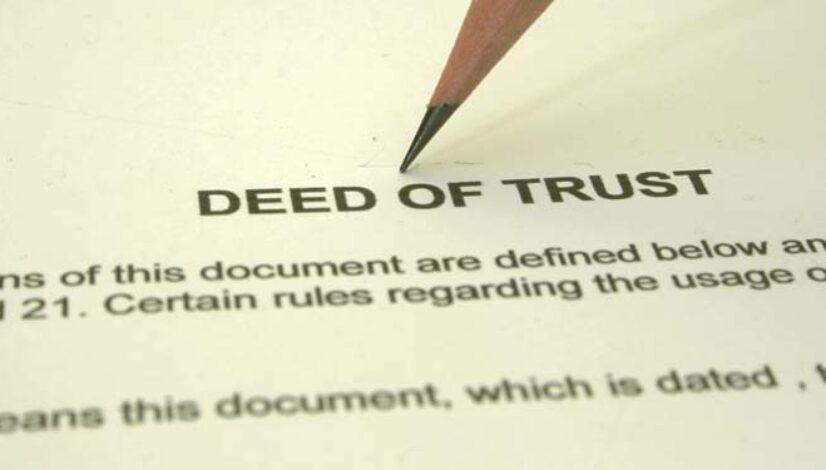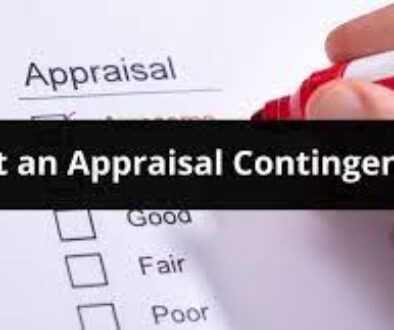Deed of Trust
Deed of Trust
When applying for the mortgage, the paperwork can seem never-ending. One of the pieces that may be relevant in your home closing is a deed of trust. If you’re in the market for a new home, understanding what a deed of trust is and how it works may help you during the home buying process.
What Is A Deed Of Trust?
A deed of trust is an agreement between a home buyer and a lender at the closing of a property. The agreement states that the home buyer will repay the home loan and the mortgage lender will hold the property’s legal title until the loan is paid in full. A deed of trust is a type of secured real estate transaction that some states use instead of mortgages.
There are three parties involved in a deed of trust:
- Trustor: This is the borrower.
- Trustee: This is the third party who will hold the legal title to the real property.
- Beneficiary: This is the lender.
These factors include:
- The original loan amount
- A description of the property
- Names for all parties involved
- The inception and maturity rate of the loan
- Fees
- What happens in case of mortgage default
- Riders
- And more, depending on the nature of the sale
How Does A Deed Of Trust Work?
In exchange for a deed of trust, the borrower gives the lender one or more promissory notes. A promissory note is a document that states a promise to pay the debt and is signed by the borrower. It contains the terms of the home loan including information such as the interest rate and other obligations.
Once a loan is completely repaid, the promissory note will be marked “paid in full” and the deed will be returned to the buyer. While the buyer is paying off the home, the lender will keep the promissory note, whereas the buyer only gets to keep a copy for their records.
Deed Of Trust Vs. Mortgage
Many homeowners confuse the terms “mortgage” and “deed of trust.” Though mortgages and deeds of trust both serve the same purpose, there are a few distinctions.
Differences
There are a few key differences between deeds of trust and mortgages:
- Deeds of trust aren’t loans: Although a mortgage is considered a type of loan, a deed of trust is not a loan, it’s an agreement.
- Foreclosure type: The type of foreclosure you’ll face depends on whether you have a deed of trust or a mortgage note. If you have a deed of trust, you’ll usually face a nonjudicial foreclosure. If you have a mortgage, your lender will need to go through the courts.
- Foreclosure length and expense: If you have a mortgage loan, it means that your lender will need to seek a judicial foreclosure to take back your property. This means that mortgages take much more time and money to foreclose on. Therefore, many mortgage lenders will use a deed of trust instead of a mortgage if your state allows it and nonjudicial foreclosures. In this scenario, your lender will almost always spend less time and money reclaiming your property.
- The number of parties involved in the foreclosure: Another minor difference between a deed of trust and a mortgage is the number of parties involved with both types of contract. A mortgage involves only two parties: the borrower and the lender. A deed of trust has a borrower, lender and a “trustee.” The trustee is a neutral third party that holds the title to a property until the loan is completely paid off by the borrower. In most cases, the trustee is an escrow If you don’t repay your loan, the escrow company’s attorney must begin the foreclosure process.
Similarities
Some of the similarities between a deed of trust and a mortgage include the following:
- Both provide a way for your lender to take back your home through foreclosure. Deeds of trust and mortgages both serve the same basic purpose. They’re both agreements that say that if you don’t follow the terms of your loan, your lender can put your home into foreclosure.The type of foreclosure may vary, but the mechanism used is still the same.
- Both are dictated by state laws. Both deeds of trust and mortgages are subject to state laws. This means that the specific type of contract your lender has to use depends on what’s legal in your state. In some states, only a mortgage is legal. In others, lenders can only use a deed of trust. A few states (like Alabama and Michigan) allow both. If your state allows both types of contracts, it’s up to your lender to choose which type you receive.




